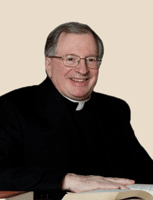Beginning with the opening of Barack Obama’s campaign for the Democratic nomination in Springfield, Ill., and culminating in Mr. Obama’s swearing-in with his hand on the Lincoln Bible, the president’s identification with Abraham Lincoln has been on public display. In this Lincoln bicentennial year, I confess to being a Lincoln devotee myself, having been shaped by the Lincoln mythology in my youth. Early on I identified with the self-taught young man who would steal away under a tree to read a book or teach himself geometry, with the broken-hearted lover of Anne Rutledge, with the sometime failure who remade himself to be elected president and with the melancholy commander in chief who endured the defeats and unexploited victories of incompetent generals before he found in Grant, Sherman and Sheridan the men to win his war. Most of all, I admired his way with words. I can still visualize myself as a grammar school student working at a drop-leaf table in our living room on Staten Island, memorizing the Gettysburg Address.
I have also been fascinated by the question of Lincoln’s religion, a topic on which there are few satisfactory studies. The Kentucky and Illinois frontier where Lincoln grew up was “the burnt-over land” of revivals and contending sects. Frontiersmen were not notably religious; and as settled life took hold, so did a contentious pluralism of Baptists, Methodists, Wesleyans, Cumberland Presbyterians and Campbellites (Disciples). It is not surprising, therefore, that as a self-taught young man Lincoln might keep his distance from the certainties and creedal feuds of his neighbors. Some of his friends regarded him as a skeptic, but he was reticent about his faith, and he publicly affirmed he was never a “scoffer” of religion. Mary Lincoln explained to his law partner and biographer, William Herndon, that “though not a technical Christian, [Lincoln] was a religious man always” who had a “kind of poetry in his soul.”
In mid-career, as he debated the future of slavery, Lincoln’s sacred texts were the Constitution and the Declaration of Independence, especially the Declaration. His mantra, the text on which he meditated again and again and that stood at the heart of his politics, was, “We hold these truths to be self-evident: that all men are created equal.” His devout attention to that line reveals a lot about his later religiosity.
Lincoln pondered things over and over. He “read less and thought more than any man of his standing in America,” wrote Herndon. “He read and re-read familiar texts until they were burned in to his memory,” comments Richard Carwardine in his recent essay “Lincoln’s Religion” in Our Lincoln. One is reminded of St. Luke’s comment that Mary “pondered all these things in her heart” or St. Ignatius Loyola’s advice that we “savor” the things we learn from the Gospel. In bearing down on a text, Lincoln had learned something quite like lectio divina.
Only late in life did Lincoln become a regular Bible reader, and he seems to have applied his practice of attentive reading to Scripture. As fruit of his meditative practice, he grasped what few preachers or moralists of the day did: that God is mystery and we ought not identify our causes with God’s; that sin is a universal condition that precludes our judging one another; that God will bring salvation to the people, and our responsibility is to “show malice toward none and charity toward all.” For Lincoln, biblical language was not simply a source of sound bites; it gave him a felt realization that the deepest patterns of biblical history are interwoven with the events of our own day.








